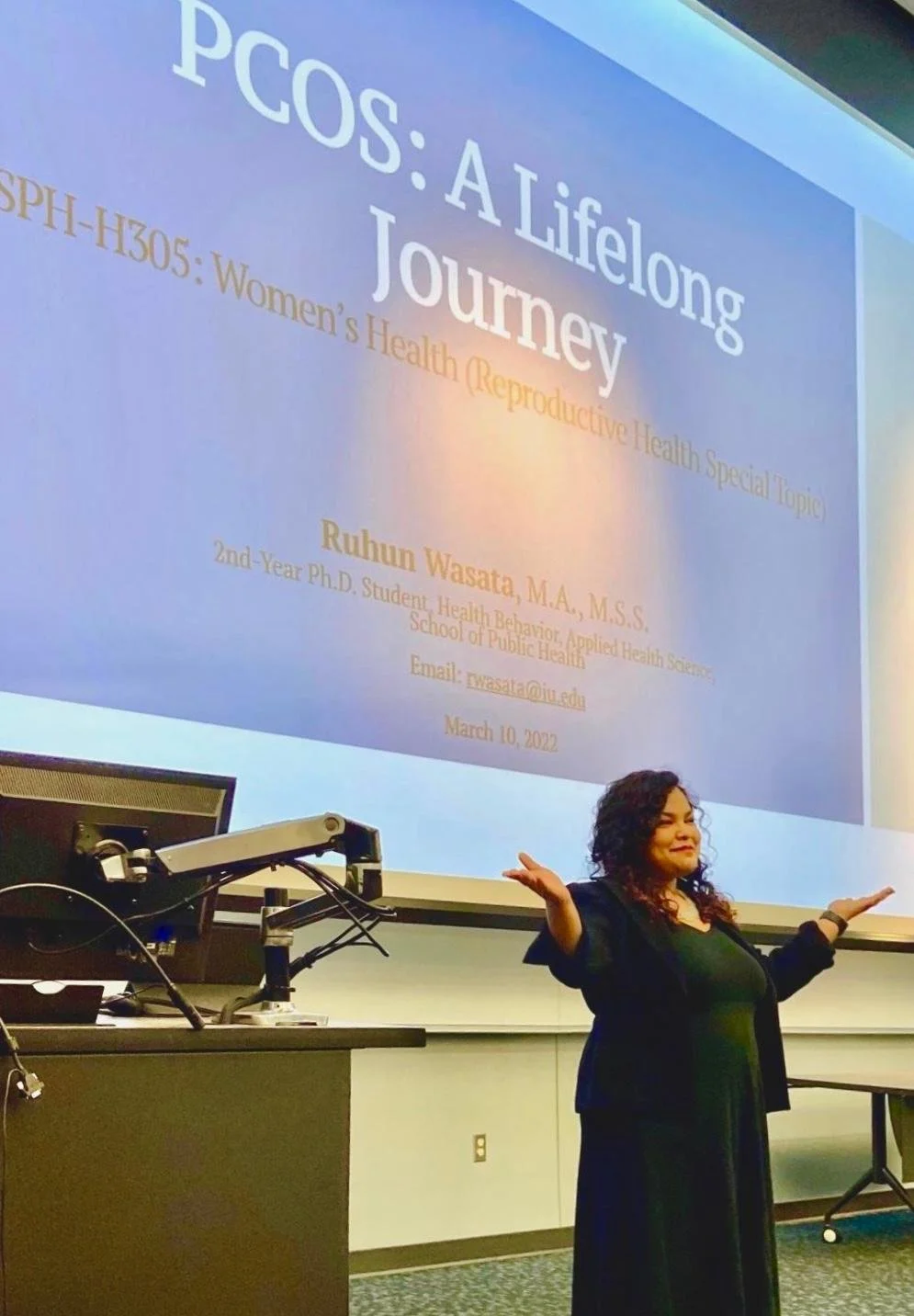Teaching
I view public health education as more than transmitting knowledge — it is about cultivating critical thinkers, problem solvers, and reflective practitioners who can confront inequities in health systems.
Three pillars guide my teaching:
Fostering critical thinking by encouraging students to question structures of inequality through flipped classrooms, media analysis, and collaborative projects.
Inquiry-based learning that engages students in hands-on projects such as designing media campaigns or creating advocacy materials.
Reflective learning that connects course material to students’ own goals and experiences, fostering both personal growth and professional skill development.
Applied Learning in the Classroom
In my Human Sexuality course at Indiana University, students critically examine media portrayals of body ideals and design projects ranging from zines debunking myths to campaigns raising awareness of global health issues. In Personal Health, students maintain semester-long behavior journals to track and reflect on SMART goals, with nearly all students meeting their objectives. These approaches help students carry classroom insights into real-world advocacy and health behavior change.
Courses Taught*:
Indiana University Bloomington (2021–2024)
SPH F255 – Human Sexuality (3 semesters, ~196 students; in-person and online asynchronous)
SPH H263 – Personal Health (3 semesters, ~499 students; online asynchronous)
East West University, Bangladesh (2014–2016; 2018–2021)
GEN 201 – Bangladesh Studies (8 semesters, ~1,040 students)
GEN 226 – Emergence of Bangladesh (6 semesters, ~440 students)
GEN 214 – Introduction to Development Studies (6 semesters, ~100 students)
GEN 212 – Women in Development (2 semesters, ~50 students)
SOC 310 – Community Development and Social Change (1 semester, ~20 students)
POP 3502 – Gender Equity, Gender Mainstreaming, and Women’s Empowerment (Independent study, one student)
Courses Ready to Teach:
Methodology of Writing in Public Health
Chronic Health Issues in the Age of Digital Media
*Syllabi and sample assignments are available upon request
Student Voices
I have taught over 2,300 students in the United States and Bangladesh, spanning large lectures, small seminars, and independent studies. My teaching evaluations consistently average between 4.5 and 4.8 on a 5-point scale, exceeding institutional benchmarks. Yet what means the most to me are the individual messages from students that affirm the impact of my teaching. My heart truly warms when I receive notes such as this one through Indiana University’s Thank-a-Prof program:
Class: Human Sexuality (F255)
Student Message:
*As we reach the conclusion of the semester, I wanted to extend my heartfelt appreciation for your exceptional instruction in the human sexuality class.
When I initially enrolled in the course, I confess to some uncertainty regarding its content and format. However, under your guidance, I discovered a rich journey of self-discovery and learning. Your evident passion for the subject matter imbued each lecture and discussion with depth and relevance, significantly enhancing my understanding of both myself and others.
The inclusive atmosphere you fostered, particularly through the group discussions, offered a welcome departure from traditional lecture-style instruction. These exchanges not only facilitated a deeper engagement with the material but also provided invaluable perspectives from my fellow classmates.
I am sincerely grateful for your dedication, patience, and encouragement throughout the semester. Your commitment to creating a positive and enriching learning environment has left a lasting impression, and I am genuinely appreciative of the knowledge and insight I have gained under your tutelage.
As we approach the summer break, I extend my warmest wishes for your well-being and relaxation. May this time afford you the opportunity to recharge and rejuvenate, preparing you for future endeavors.
Thank you once again for a rewarding semester. It has been a pleasure to learn from you.*


